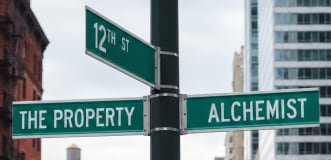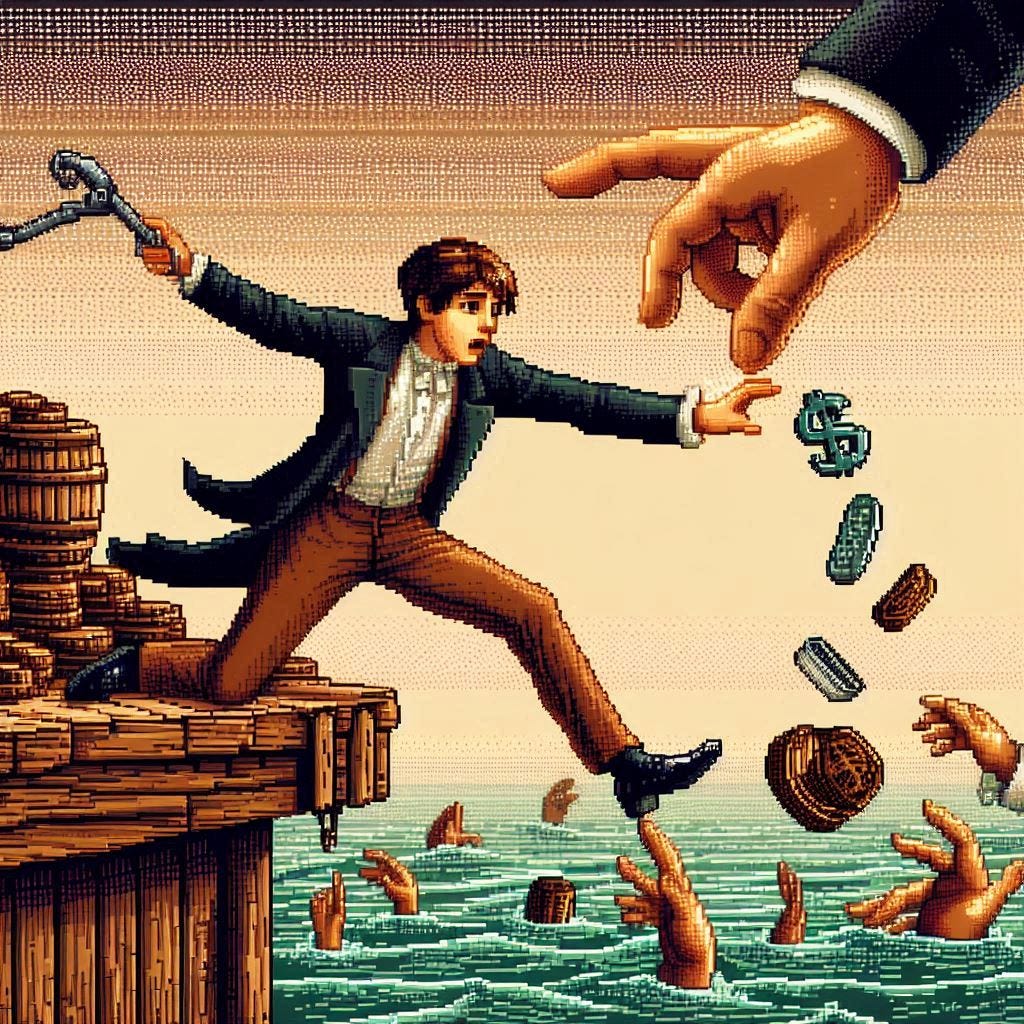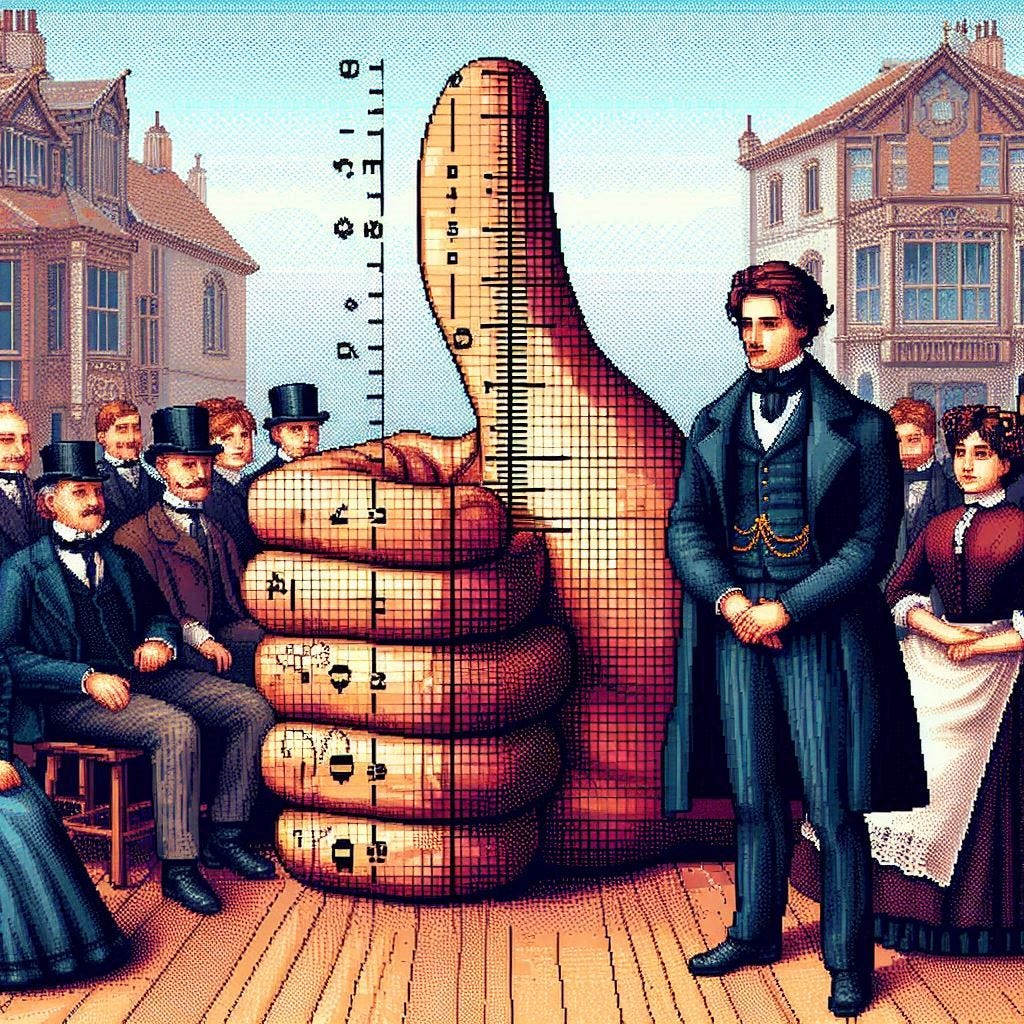How much property can I afford
Tactical Tips #1
Greetings, fellow Alchemists! Grab your wands and cauldrons, because we're about to embark on a journey into the realm of property investment. We're kicking off a new series of posts dedicated to the tactical day-to-day tasks of the investment property journey. As this is the first installment, we begin our quest before the first property is acquired. In fact, this installment is about the day-one task of using mystical tools to figure out how much you may be able to afford in your first investment.
In this installment, we'll be talking about the very first step to becoming a landlord - searching for property to buy. Specifically, we'll be conjuring up knowledge about the price range and investment considerations to ponder when you start looking for properties to buy.
What if you know nothing about real estate, but want to learn and hope to invest? Fear not! If we are to start at the very beginning, we need to think about what kind of property would be the best fit for our investment potion.
While there are other types of property, the ones that are best for first-time investors are likely single-family or multi-family homes.
So to start, we have to consider two very basic questions:
1. How much gold (er, money) are we starting with?
2. How much income could you add every month if you lived in the property?
The objective is to understand how much house you can buy. Because in the end, you should buy what works best for you. There's no point in going after castles you can't afford or ignoring cozy cottages that may be great investments.
Nobody wants to buy a house and risk losing money or worse, losing the house itself. Since banks make money on lending (think of them as gold-hungry dragons), they want to lend you as much as possible. They don't care if it's a bad investment on your part, they just want their interest. After all, if you ever wind up in a difficult time, you would probably stop spending money on other things before you stopped paying the bank, right?
That's why you have to be very careful about how much risk you take. There's no point in spending $400K and losing money if you could spend $250K and make a profit. So, to understand how much house you should be looking to buy and help you make the right investment decision, there are a number of key factors we can use to determine the size/price of our target investment.
What if you have never owned a house? Well, my novice property wizard, you're in luck!
If you're considering buying a multi-family property as your first house, you should know that there's help from the government that can significantly reduce your cost. You can only be eligible for these programs if you plan to live in your property. It's like getting a magic boost for your first spell!
*FHA loan: The go-to loan program for buyers with weaker credit.
* VA loan: No down payment loans for borrowers with a military connection.
* USDA loan: 100% financing on rural properties. Perfect for those seeking a quiet farmhouse in the countryside.
* Fannie and Freddie: Conventional loans with just 3% down.
* State first-time home buyer program: Assistance specifically for residents.
* Home renovation loan: HUD 203(k). For when you find a fixer-upper that needs a magical makeover.
The main benefit of these programs is that they remove some of the additional expenses that banks might charge you if you bought the property purely as an investment property. There are very few places in investing where the new kid on the block gets a better deal. This is one of the few times where being a beginner is a huge bonus.
If you've never applied for a mortgage on an investment property or multi-family property before, you should know that the bank will add 70% of the rental income (assuming 30% for operating costs and vacancy) to your own salary and income when deciding to give you a mortgage. So, when you're trying to understand what you could afford, it's important to know what the current rents are or what the market is.
If the information isn't provided, a good and quick way to estimate is to look up other rentals in the area using Zillow or some other search tool to figure out about how much rent is by looking at the average per sqft. You can then look at whoch part of the property you're interested in you will rent out and multiply that average $/sqft by the area you plan to rent out. From this number, the bank will take 70% as applicable to the overall income to support the mortgage. So, we'll use that same number with our income to figure out if we can afford that property. There are a number of affordability calculators out there you can use.
It's important to keep in mind that some banks will only allow you to use that 70% of the rental income on your loan application if you're buying a property with signed leases. Otherwise, the bank may only allow you to use personal income. That can make a huge difference in what you can afford - it's like the difference between casting a spell with or without your magic wand.
Use this tool to see what you might be able to afford: Zillow's Affordability Calculator
If you believe that your personality and ability to get along with people will allow you to manage the property you live in and have your neighbors be your tenants, you will reap handsome rewards from the banks. A mortgage on an apartment building that you live in could have an interest rate that is as much as 0.5% lower. It's another ‘hidden discount’ used as a summoning spell for profits.
That means that banks give you a big incentive to live in the investment property you have. In other words, the interest rate on a duplex when you live and rent one unit will likely be lower than the interest rate on a single-family house you buy to rent out. If you bought a $500K property, that's about $480 per month. That's money in your pocket - or your wizard's robe, if you prefer!
Likewise, insurance companies also give you a big break on insurance costs if your property is owner-occupied. Generally speaking, insuring a multi-family property that you live in will cost 20 to 30% less. If we assume that a non-owner occupied policy on a $500K property costs about $3000 per year, living in the property could save you another $75 per month. More gold for your vault!
You can check out average insurance costs here: Bankrate's Insurance Cost Guide
This is really important because most multi-family properties are priced with the built-in assumption that the landlord will be paying someone else to do it. Most landlords don't want to do the work themselves. For a first-time buyer tight on money, that is where your profit lies. That is the room in the market for you to get in. If you're willing to roll up your sleeves and have a DIY attitude, you can get into the game much earlier on. It's like learning to brew your own potions instead of buying them pre-made!
Since people don't own property to lose money, investment properties are generally priced so a buyer covers the expenses and mortgage payment with the rents. Mowing the lawn, taking out the trash, cleaning the common space yourself also saves you a bunch. Remember, if you lived in your own one-family house, you would still need to take out the trash, mow the lawn, and shovel the driveway. The way I see it, I'm doing this work anyway at my house, so if I have tenants living with me, I don't have to pay people to do it somewhere else. This is probably another $300 per month in savings. It's like getting paid to do your chores!
In my Brooklyn neighborhood, having a super to take care of all of these things costs $700 per month. That's real money if you do the work yourself. That is one advantage of the owner-occupied investment model. In the end, if you can fix stuff yourself or learn how to from YouTube (the modern wizard's grimoire), you can save a lot of cost on many straightforward repairs and improvements.
While the down payment is a limiting factor in terms of how much you can borrow, it also greatly impacts the interest rate and cost of the loan. In the long run, that interest rate savings is a big deal. It's like choosing between a fast-acting but expensive potion and a slower but more cost-effective one.
Let's say you have $50,000 for a down payment. If you bought a $200K property, you would be at the lowest interest rate you could get in the market. If you used that same money to buy a $250K property, your interest would probably be about 1% higher. That means that the extra $50K of property you bought cost you about $2000 a year in interest on the first 200K you borrowed.
If you used your $50K to buy a $500K property, you would pay an additional 1% in interest, for a total of 2% increase. That means that the extra $300K of property you bought cost you about $4000 a year in interest on the first 200K you borrowed. What's worse is that because you put down less than 20%, you will need to pay PMI (private mortgage insurance) which will add another 1%.
What that means is that while the bank will happily lend you the money and charge you interest and fees up the wazoo, the fact that you bought more property with that same down payment may actually make it a worse investment decision. It's like trying to cast a spell that's too powerful for your current abilities - it might backfire!
I know a lot of people just want a rule of thumb for how they should do things. The problem is that it's just not that simple. To be a successful landlord, you need to be savvy about your finances. Do the hard work and don't rely on a rule of thumb. I know the 1% rule seems like it makes things easy to analyze, but your profit will vary wildly based on your borrowing costs just as much as your rental revenue. Only 7% of taxpayers own rental properties. If you're joining this "club" and want success, you will need to do your homework and not just rely on oversimplified rules. It's like trying to become a master wizard by only learning one spell!
Think of your investment like an old-fashioned double-pan balance. You want to make sure that your revenue makes your investment viable, but you also want to make sure that the expenses are reasonable. After all, profit is revenue minus expenses. That's why understanding how much of your money goes out the window to the bank can make the difference between a good investment and a bad one. It's all about finding the right balance in your financial potion,
Always be aware that the reason the bank will reduce the interest rate when the down payment is larger is it reduces the chance that they will lose money on their loan. If you can't pay your mortgage and the bank has to foreclose on you, the first one to lose money is you. If the bank takes your property and has to sell it for less than you owe, you're still on the hook for the difference. It's a contract - make sure you understand all the terms before you sign.
And there you have it, my fellow Property Alchemists! Armed with this knowledge, you're ready to begin your quest for the perfect investment property. Remember, every great wizard started as a novice, and every great real estate mogul started with their first property. So grab your wand (or calculator), don your robe (or business casual), and let's start turning those properties into gold. As you set forth on your property investment quest, keep your wits about you, your calculator at the ready, and your sense of adventure alive. Every property you consider is a new spell to master, every deal a new potion to brew. There will be challenges along the way, but with perseverance and the knowledge you've gained, you're well-equipped to face them.
If you've found value in these insights and want to continue your journey of real estate wisdom, we invite you to subscribe to The Property Alchemist.
Don't let your real estate dreams remain just dreams. Empower yourself with the knowledge and insights that can turn your investment visions into concrete reality. Subscribe to The Property Alchemist today and take the first step towards becoming a master of real estate alchemy. Your next successful project is just a subscription away!




